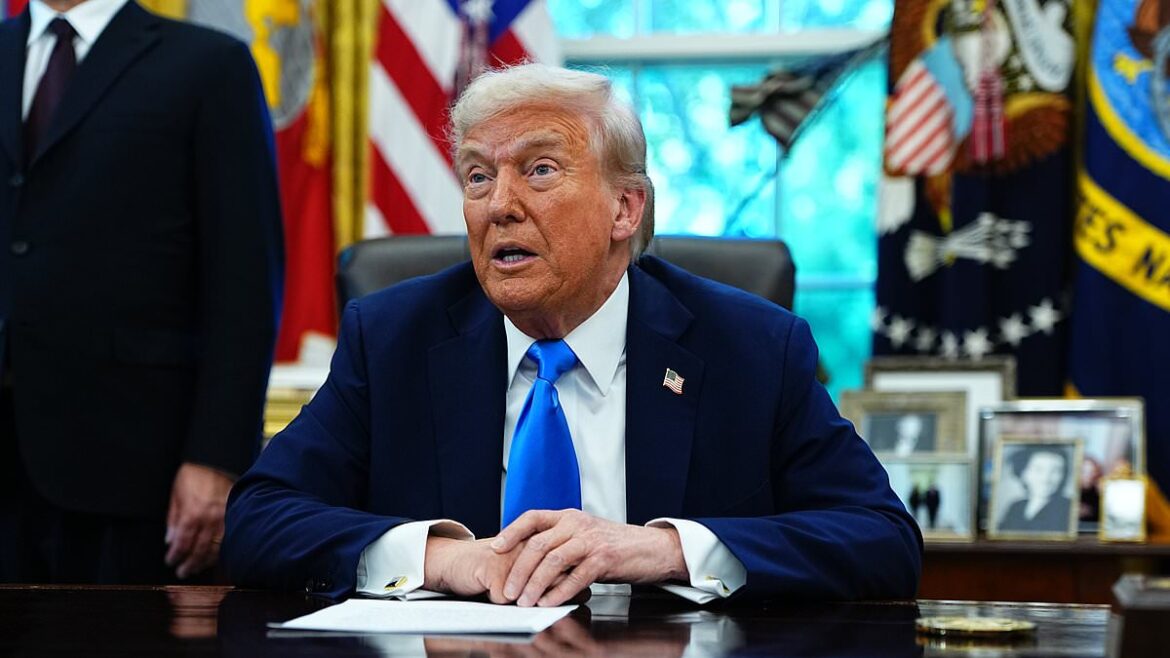Estonia has sounded the alarm after three Russian fighter jets briefly entered its airspace in what officials are calling a “reckless” and “brazen” act of intimidation.
The incident, which lasted about 12 minutes, has prompted urgent talks with NATO allies and heightened concerns across Europe about Russia’s aggressive posture in the region.
US President Donald Trump also weighed in, warning of “big trouble” as the MiG-31 warplanes tested Estonia’s defences.
NATO responded immediately, scrambling F-35 fighters to intercept the Russian aircraft and signal that any violation of member state airspace would not be ignored.
Estonia Calls for NATO Article 4 Consultations
Prime Minister Kristen Michal confirmed that Estonia has requested NATO invoke Article 4, a mechanism for urgent consultations among alliance members. “Such a violation is completely unacceptable,” Michal said.
“NATO’s response to any provocation must be united and strong.
It’s essential to consult with our allies to share situational awareness and agree on our next steps.”
Estonian officials have noted that this is the fourth airspace breach by Russia this year, with previous incidents occurring over Lithuania, Latvia, Poland, and Romania.
Foreign Minister Margus Tsahkna described Friday’s incursion near Vaindloo Island as “unprecedentedly brazen.”
European and US Leaders Condemn the Incursion
The UK’s Foreign Secretary Yvette Cooper reaffirmed support for Estonia on social media, while European Union foreign policy chief Kaja Kallas called the move “an extremely dangerous provocation” that escalates regional tensions.
MI6 chief Sir Richard Moore denounced Russian President Vladimir Putin as a “liar” seeking to impose his imperial will by any means necessary.
Air Marshal Greg Bagwell, a retired RAF deputy commander, argued that NATO must establish a clear “red line” and act decisively if it is crossed.
“Today these aircraft were armed only with air-to-air missiles,” he said.
“Tomorrow it could be something more sinister. NATO must make its boundaries clear and respond ruthlessly if provoked.”
Russian Aggression Extends Beyond Estonia
The Russian incursion into Estonia comes amid ongoing attacks on Ukraine.
In the early hours of Friday night, Russia launched roughly 580 drones and 40 missiles against Ukrainian cities, infrastructure, and civilian targets. Air alerts lasted up to 11 hours in some regions.
Ukrainian forces shot down 552 drones and 31 missiles, but casualties still occurred, with at least three killed and dozens injured.
Ukraine struck back, reportedly hitting two Russian oil refineries in Novokuibyshevsk and the Samara region using drones.
President Volodymyr Zelensky emphasized that these attacks are not military necessities but deliberate efforts to terrorize civilians.
He called for stronger air defences and more sanctions against Russia while planning discussions with President Trump on security guarantees for Ukraine.
NATO Strengthens Defences in the Region
Polish and allied aircraft were deployed to secure Polish airspace following the Russian attacks.
“Polish and allied aircraft are operating in our airspace while ground-based air defence and radar reconnaissance systems have been brought to the highest state of readiness,” the Polish operational command said.
These measures were preventative and aimed at protecting areas adjacent to the conflict zone.
Italy also scrambled F-35s to intercept the MiG-31s, which had penetrated about five miles into Estonian airspace before returning to Russian territory.
Estonia summoned the Russian charge d’affaires in Tallinn, issuing a formal protest note over the violation.
Putin’s Tactics Tested NATO’s Unity
Experts warn that Russia’s maneuvers are part of a broader strategy to provoke NATO, sow discord among alliance members, and test the limits of Western resolve.
Bagwell described the incidents as deliberate provocations designed to exploit “grey zones” where boundaries are unclear.
“We need to turn that grey zone into a clear delineation of black and white—and act accordingly when that line is crossed,” he said.
Russian authorities deny the violation, claiming their jets stayed over neutral Baltic Sea waters at least three kilometers from Estonian territory.
Yet neighboring Baltic states and Poland remain deeply concerned, viewing these incidents as direct threats given their staunch support for Ukraine.
Calls for Stronger Action and Economic Pressure
Zelensky, European leaders, and NATO officials have all called for systemic and collective responses.
“Russia escalates, we do nothing, Russia escalates more… we are starting to see a pattern,” noted former Lithuanian foreign minister Gabrielius Landsbergis.
Yvette Cooper and others have urged stronger economic sanctions and defensive measures, warning that any sign of weakness could embolden Moscow further.
The breach in Estonian airspace, combined with attacks on Ukraine and provocations over Polish facilities, underscores the fragility of security in Eastern Europe.
NATO allies now face mounting pressure to show unity and decisiveness in responding to Russia’s increasingly assertive tactics.
